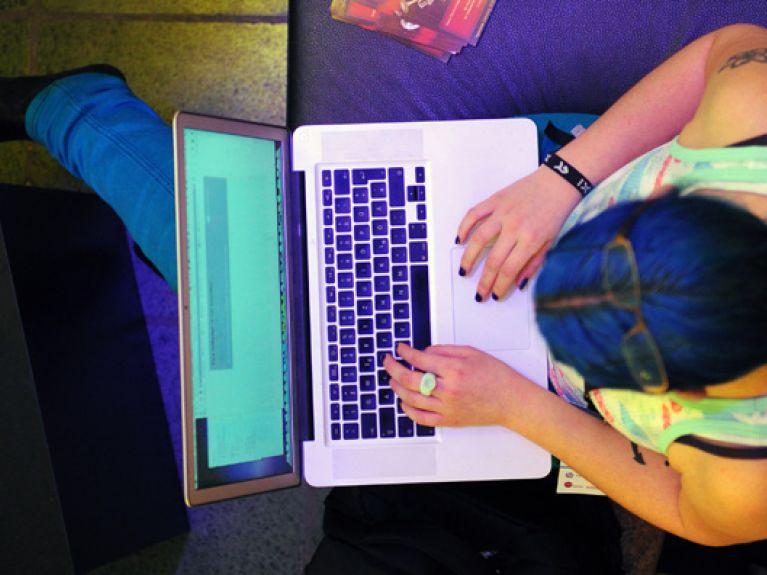The Berlinale bloggers
Open your laptops: 12 international bloggers, film journalists and cineastes are reporting on the Berlinale for the Goethe-Institut and creating a multinational perspective.

“Ideas do not need an entry visa – thanks, too, to the power of film,” writes the Italian arts journalist Andrea D’Addio in one of his texts. “They can circulate everywhere – not only in Berlin, but also in the rest of the world.” D’Addio is one of the twelve Berlinale bloggers who have been commissioned by the Goethe-Institut to write about the Berlin International Film Festival. Their texts are being published on the Goethe-Institut website – and also appear in the DEUTSCHLAND blog. There, too, Fanny Steyer, a German-French arts journalist, is reporting from the Berlinale exclusively for deutschland.de and writing down her daily observations in entertaining Berlinale tidbits.
The number of Berlinale visitors is huge: over 250,000 tickets were sold by the middle of the festival. The 67th Berlinale is taking place from 9 to 19 February 2017. The Berlinale bloggers in 2017 come from Australia, Brazil, Canada, China, Egypt, Germany, Italy, Japan, Norway, Poland, Spain and the United Kingdom. They look for exciting stories not only in the cinemas or behind the scenes, but also in the capital city Berlin at large, and then describe their observations from a multinational perspective. They consider their impressions together against the background of the cultures from which they come.
Gender, jazz and history
Thus, for example, Julia Thurnau, the German-French actor who is blogging for goethe.de/norwegen, writes about gender equality at the Berlinale: “A mere six of the 24 competition entries in 2017 come courtesy of female directors. Less than a third! That is a long way off an egalitarian 50%, though it is at least an increase on last year, when just two of the 21 directors were women.” Even Norway is represented this year with three Berlinale contributions by male directors: Ole Giæver, Thomas Arslan and Erik Poppe. “Why has the Norwegian film industry so far failed to apply the Swedish model of gender equality?” asks Thurnau.
Sarah Ward, the Australian film critic, author and film festival organiser, takes a closer look at Django, the film directed by Etienne Comar. In emotional lines, she analyses the opening film of the 67th Berlinale about the survival of Django Reinhardt, a Roma, in the Second World War. “With the film soundtracked by Reinhardt’s lively playing, as well as an original piece based on a largely lost work crafted by the guitarist after the war, Comar’s approach also offers a powerful contrast between horror and artistry.” Ward brings the film into direct contact with the historical and contemporary context of the festival: “The Topography of Terror Documentation Center fills in the gaps in heartbreaking details. Both the grand celebration of contemporary cinema and the unshakeable knowledge of harrowing previous events can co-exist, but there’s no denying that one shapes the other. Reinhardt learns this as Django brings its thoughtful drama to an end — and, so does the Berlinale audience.”
blog.deutschland.de/berlinale-2017
© www.deutschland.de

